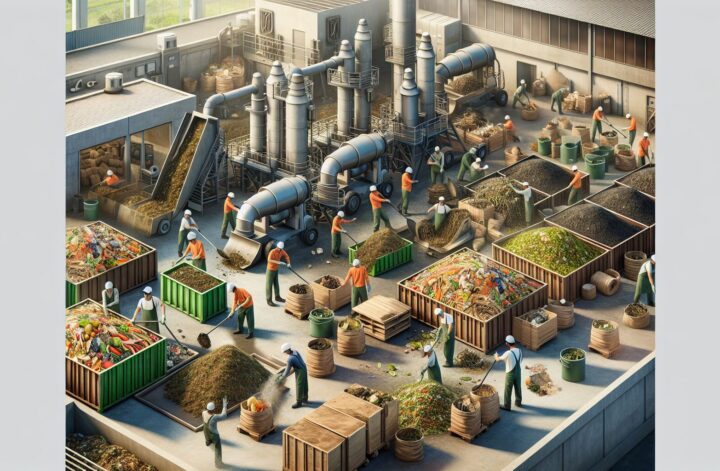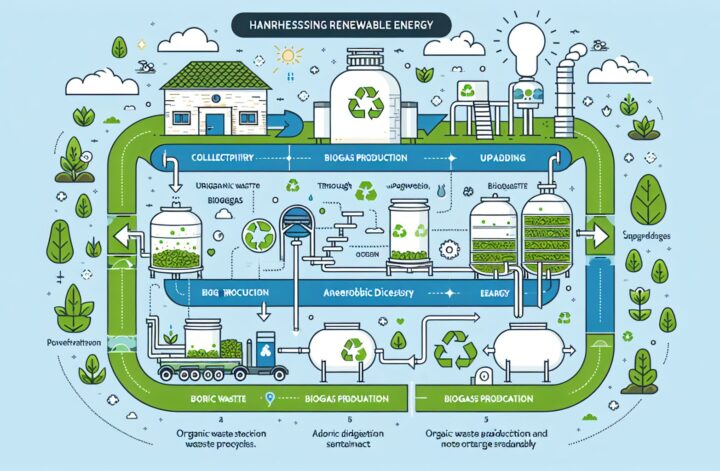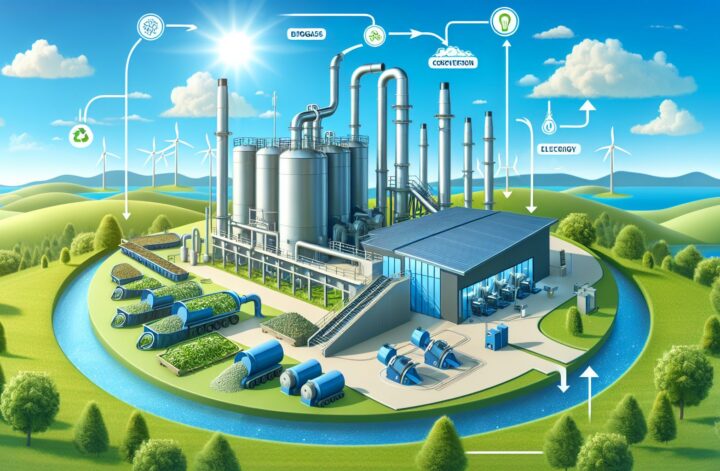In a world grappling with the adverse impacts of climate change, it is crucial to adopt sustainable and environmentally friendly practices. One such practice is the treatment of organic waste, a significant and unavoidable part of our daily life. Organic waste treatment could help reduce dependency on traditional energy sources, reduce landfill, and decrease greenhouse gas emissions. In this article, we will delve into the intricacies of organic waste treatment and its myriad benefits.
What is Organic Waste?
Before understanding the process of treatment, it’s essential to know what organic waste is. Simply put, organic waste is anything that comes from plants or animals and is biodegradable. This can include everything from food scraps, garden waste, paper, and wood, to agricultural and human waste¹. Globally, millions of tons of organic waste are produced annually. Although often viewed as a problem, if utilized intelligently, organic waste can be a valuable resource.
Organic Waste Treatment – A Shift in Perspective
Organic waste treatment usually refers to the collection, processing, and disposition of waste material. Traditionally organic waste has been either discarded in landfills or incinerated. These methods, though prevalent, are far from ideal. They contribute to the generation of greenhouse gases, harm biodiversity, and waste valuable resources that could have been put to better use.
Therefore, there’s been a major shift in perspective in the treatment of organic waste, from its management as a ‘waste product’ to its utilisation as a ‘resource’. This has led to the development of several organic waste treatment technologies that recover energy, nutrients, and other valuable fractions from waste².
Organic Waste Treatment Technologies
Composting
Composting is perhaps the most common organic waste treatment method. Under this method, organic waste is collected and placed in an environment that encourages the growth of microorganisms. These microorganisms break down the waste and convert it into compost, a nutrient-rich soil conditioner. Composting not only reduces waste but also enriches the soil and promotes plant growth.
Anaerobic Digestion
Another method for treating organic waste is anaerobic digestion. This is a series of biological processes wherein microorganisms break down biodegradable material in the absence of oxygen. The end product of anaerobic digestion is biogas, which can be used as a renewable energy source and digestate, a nutrient-rich substance that can be used as a soil conditioner. Anaerobic digestion is a more sophisticated method of organic waste treatment and yields valuable outputs.
Mechanical Biological Treatment (MBT)
The Mechanical Biological Treatment (MBT) method is essentially a combination of composting and anaerobic digestion. Firstly, the waste is mechanically sorted to remove non-organic material. Then, the organic fraction is treated biologically through composting or anaerobic digestion, or a combination of both.
How Treating Organic Waste Benefits Us
Treating organic waste through methods like composting and anaerobic digestion has a multitude of benefits.
Reducing Waste: By treating organic waste, the volume of waste sent to landfills is drastically reduced, thus decreasing landfill fees and reducing the environmental impact.
Creating Valuable Products: The byproducts of treated organic waste, like compost and biogas, are extremely valuable. Compost enriches the soil and aids plant growth while biogas is a renewable source of energy.
Lowering Greenhouse Gas Emissions: Organic waste in landfills decomposes in the absence of oxygen, creating methane, a potent greenhouse gas. By treating organic waste, we can prevent this methane production.
Creating Job Opportunities: Infrastructure for organic waste treatment methods would need to be set up, hence providing job opportunities in the process.
Moving Towards a Sustainable Future
Treating organic waste gives us the power to create a sustainable future. By implementing organic waste treatment on a wider scale, not only can we manage our waste better, but we can also move towards a closed-loop circular economy benefiting society and the planet alike.
Apart from individuals, businesses and governments too have a crucial role to play. Be it ensuring the necessary infrastructure, enacting policies, or offering incentives for organic waste treatment, we all have a part to play in this endeavor.
The process of treating organic waste might look complex. However, it is the need of the hour. The sooner we adapt and start treating organic waste, the earlier we can reap its benefits.
Conclusion
In conclusion, the journey from seeing organic waste as a problem to recognizing it as a resource marks the start of a more sustainable world. Organic waste treatment offers a multitude of environmental benefits and underscores how changing perceptions could lead to significant solutions. So the next time you are about to discard organic waste, pause and rethink. There might be a whole lot of value in what you are throwing away!
References:
1. “An Introduction to Biological Waste,” Cleanup.org.au, available here
2. “Organic waste treatment: A circular economy for biowaste,” PubMed, available here.
3. “Organic Waste Management and Compost Use in Gardening: A Review,” MDPI, available here




